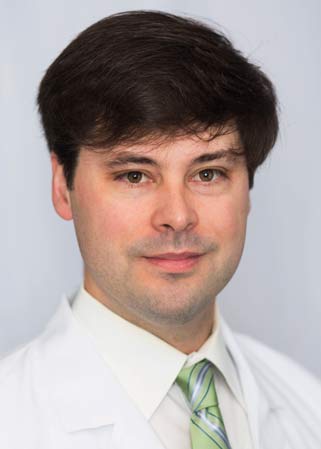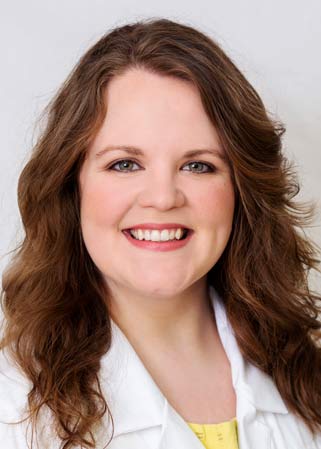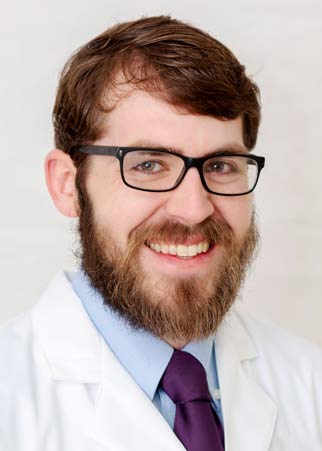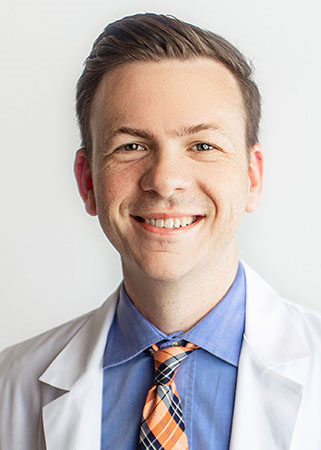ADHD – Attention Deficit Hyperactivity Disorder
Quick Facts
ADHD Doctors
Mary Ann King, DO
Pediatrics
JR McPherson, MD
Pediatrics
Erin Livingston, MD
Pediatrics
Erin Livingston, MD
Pediatrics
Jason Simpson, DO
Pediatrics
What is ADHD?
Attention deficit hyperactivity disorder (ADHD) is a common disorder of childhood that causes inattention, hyperactivity, and/or impulsivity. It affects approximately 1 in 10 children. It is more common in boys than girls.
Types of ADHD
There are three subtypes of ADHD based on symptoms:
- Primarily inattentive type
- Primarily hyperactive/impulsive type
- Combined type
ADHD Diagnosis:
- SIX or more symptoms of inattention and/or SIX or more symptoms of hyperactivity/impulsivity
- Symptoms MUST be causing problems in TWO or more locations
There are several conditions that can be confused with ADHD. Sometimes formal testing with a psychologist is required to determine whether a child has a learning disability or other disorder.
ADHD Treatment
Depending on your child’s age, your doctor may recommend behavioral therapy, medication, or both.
- Behavioral therapy: The younger the child, the more important behavioral therapy is in managing symptoms. Structure, routines, good sleep, nutrition, and physical activity are important as well.
- Non-stimulant medications: These medications are often used in younger children or children whose parents are hesitant about stimulant medications
- Stimulants: There is a long list of medications in this category and working closely with your child’s doctor can help find the correct therapy for them.
FAQs
What is the difference between ADD and ADHD?
ADD (attention deficit disorder) is the former term for what is now called ADHD, predominantly inattentive type. It is no longer used as an official diagnosis.
Why do symptoms have to be present in more than one location?
All young children have times when they don’t pay attention or are hyper. Not all will have symptoms that significantly affect their life at home or school.
Children can also have symptoms in only one location due to that environment, while ADHD is always present.
What if my child has more than one problem?
There are several diagnoses that tend to present along with ADHD. It can be difficult to determine which symptoms come from which underlying cause. Working closely with an experienced doctor can help find the correct medicine regimen with the fewest side effects.
What are the side effects of ADHD medications?
Non-stimulant medications most commonly cause drowsiness. They are usually weaned on and off to prevent changes in blood pressure.
The most common side effects from stimulant medications include decreased appetite/weight loss, difficulty sleeping, abdominal pain, and headaches.
There are less common but more serious side effects with all these medications, so talk to your doctor if you have any concerns.
Can I stop my child’s medicine on the weekends or over the summer?
It is not recommended to take “holidays” from medicines. ADHD is always there, and children are always learning. It is important for them to be able to control their impulses or pay attention to their environment.
Will my child get addicted to their medicine?
Stimulant medicines taken as prescribed do not usually cause addiction. In fact, people with ADHD who do not take medication are MORE likely to abuse alcohol or other drugs. There are some medicines that are less likely to be overused, so talk to your doctor about your concerns.
What happens if you don’t treat ADHD?
Children and teens with untreated ADHD are more likely to have accidents, abuse substances, and have difficulty with relationships.
Is ADHD related to intelligence?
ADHD is generally considered separate from intelligence. It can affect school performance, but this is usually correctable with treatment. If there are concerns about your child’s intelligence, your doctor may send them for testing.





